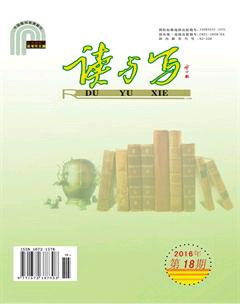Translation of Some Animal Idiomsfrom Cultural Perspective
陈婷
Abstract:Chinese and English are advanced developed languages so that there are oceans of idioms. Animal idioms hold its unshakable place in the big family. In translation of English and Chinese, idioms is of such a significance. Therefore, when doing translation of animal idioms, we cannot use simple literal translation or translation taken no account of culture and context. Thus, animal idioms are able to play its role of richening language. This paper reveals the discrepancy on the basis of many typical animal idioms in Chinese and English.
Key words: animal idioms; culture; cultural cause; translation
中图分类号:G633.41文献标识码:B文章编号:1672-1578(2016)09-0170-02
Idiom, in general, we divide idioms into three parts: colloquialisms, proverbs and slang expressions. The following paper is intended to analyze animal imageries in animal idioms.
1.The Same Animal Imagery Expressing the Same or Similar Cultural Connotative Meaning
There are varies of animal idioms in English and Chinese that show the same animal imageries with similar even the same cultural connotative meaning. For example: fish in troubled waters (混水摸鱼), he who rides a tiger is afraid of dismount (骑虎难下); a wolf in sheep' s clothing (披着羊皮的狼). Fox, another good point, symbolizes cunning person. In Chinese, we usually call a seductive female of great beauty and charm as "狐狸精"; when we try to say a person is sly, we use he is a wily fox (他就是个诡计多端的老狐狸). Pig, as a symbol of obesity, dirt and laziness, is unpleasant and offensive both in Chinese and English cultures. There are " as fat as a pig" (肥的像头猪); "as lazy as a pig" (懒得像头猪) to describe a fat or lazy person in Chinese. Moreover, when we say something that is impossible to happen, we use "pigs might fly", or "when pigs fly" (太阳从西边出来了). Wolf, being a cruel and fiendish creature in both Chinese and English culture, stands for greedy and ruthless. In Chinese, such as: 狼狈为奸 (hand in glove with wolf); 引狼入室 (set the wolf to keep sheep); 见死不救 (throw sb. to the wolves).
Another good point is bee, worked as a hard-working person. We have "as busy as bee" and "the bee' s knees" (出类拔萃的人). Donkey and lark are also imageries containing similar connotative meaning. The former stands for stupid, sometimes hard boring work; while lark is a symbol of happiness and good luck. "Stupid donkey" (蠢驴), "donkey work" (苦差事); "be happy as a lark", "be up with lark" (鸡鸣即起).
2.The Same Animal Imagery Convey Different Cultural Connotative Meaning
Dragon, in Chinese culture, represents auspice, lordliness, authority and prosperity. It is no denying that Chinese people believe that they are descendant of dragon. For example: 龙腾虎跃 (vigorous and enthusiastic); 龙飞凤舞 (flying dragon and dancing phoenix); 龙凤呈祥 (The dragon and phoenix bring prosperity) to give wishes to newlywed couples.
In western culture, people look dragons as evil representatives and a kind of ferocious beast which is the devils' embodiment. In the Holy Bible, Satan is known as a dragon. The dragon is also used to describe brutal person, especially a woman who behaves in a aggressive and fighting way (悍妇,母夜叉), for example: she is an absolute dragon, which can be translated into " 她是个十足的母夜叉".
Dog is a kind of petty and low animal in China. Chinese raise dogs to guard against theft. When we Chinese try to indicate people who do bad deeds for their evil boss we use "狗腿子". In English, there is a word which has the similar connotative meaning with this expression, that is "lackey", a person who is treated as a servant or who behaves like a servant "走狗", This expression is similar to "狗腿子". The latter literal translation "the running dog" can not express the implication of "走狗", because western people have a positive impression with dog and regard it as their loyal companion. They take it for granted that a running dog means a man full of energy and strength. So it can be translated into "henchman".
3.Different Animal Imageries in Chinese and English Idioms Express Similar Connotative Meaning
Although different cultures lead to distinctive expressions, different idioms are likely to have similar connotative meaning. When we deal with these special idioms, we should make proper conversion between animal imageries.
(1) Lion in the way 拦路虎
(2) As mute as fish 噤若寒蝉
(3) As strong as a horse 健壮如牛
(4) As stubborn as a mule 倔得像头驴
(5)Like a cat on hot bricks 像热锅上的蚂蚁
(6) Eat like a horse 狼吞虎咽
(7) Look like a drowned rat 湿得像落汤鸡
(8) Like a duck t o water 如鱼得水
(9) Goose flesh 鸡皮疙瘩
(10) Drink like a fish 牛饮
(11) To kill one bird with one stone 一箭双雕
(12) As timid as a rabbit 胆小如鼠
(13) To weak a sleeping dog 打草惊蛇
4.Other Unique and Respective Animal Imageries in Chinese and English Idioms
Yuan yang, Xian he (鸳鸯,仙鹤) in Chinese are two typical auspicious emblem. The former refer to beatific and felicific couples in marriage, while the latter symbolizes the longevity, propitious omen and loyalty. So we had better translate Yuan yang as mandarin duck, which refers to affectionate couples paired for life. Thus, Xian he can be translated into mandarin red-crowned crane.
This thesis cited various examples of the animal idioms, and analyzed cultural causes of lots of animal idioms from different perspectives. The animal idioms is one in the family of idioms, they reflect the culture vividly in a humorous way. So, when we translate animal idioms, not only should we notice the translation skills but also deal with them under different culture.

